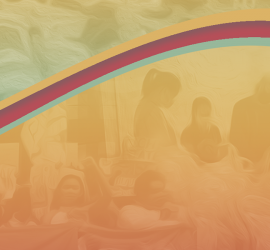The final webinar of the series, UNLAD: Para kanino? Talakayan ukol sa pagbubuo ng mga proyektong pang-kaunlaran ng komunidad, explored the fundamentals of Preparing and Writing Project Proposals. The session’s speaker was Assistant Professor Devralin T. Lagos from the College of Social Work and Community Development, University of the Philippines Diliman. Just like with the previous sessions, this webinar is aimed at ensuring that all processes involved from the conceptualization until evaluation of projects in the community are anchored upon the principles of a people-centered development. It emphasized the importance of community organizing. Project development practitioners need to conduct iterative and joint writing workshops and to assign community workers as “facilitators of development planning and proposal development” that “handover the stick” to the community. The speaker reiterated that the people in the communities are not just “add-ons.” They should be the centre of the project. To be anchored in the principles of people-centred development means to undertake the questions “Kaninong plano at pangarap ang dapat maisalamin ng project proposal?” and “Sino ang dapat magsulat ng proposal?” With conviction, the speaker answered that her bias was that the community members should be writing the proposal. In the latter part of her presentation, she cited an example where a community wrote a paper abstract and even presented it at an international conference proving her point that community members can write a project proposal. However, she acknowledged the prevalence of instances where the office or the students themselves write the proposal. Most importantly, she reminded everyone that it is still possible to engage in participatory methods when writing proposals. The speaker cited an example that reinforced the mentioned key points. A fisherfolk community harvests and sells shellfish. This community is prone to red tide, resulting in loss of income and extreme hunger and poverty. The community had done community planning workshops concerning their situation due to the red tide. They analyzed their progression of vulnerability and progression of safety. They realized that their lack of savings even without red tide causes extreme poverty. Poverty is the lack of access to resources of the […]
Monthly Archives: February 2021
As the webinar series continued on its fourth run, its focus now shifted to Development, Implementation, and Evaluation of Participatory Projects. The first speaker for this webinar, Sir Karl Arvin Hapal from the Department of Community Development, College of Social Work and Development at the University of the Philippines Diliman, explained that the concepts he will be discussing are based on the concept of decolonization of development. As he said, this means that the development is being brought back to the people. Prof Hapal’s first key point is about the conventional practices and methods that are used for participatory project development, implementation, monitoring, and evaluation. These include Logical Framework, Theory of Change, and SWOT Analysis. A logical framework is used to assess the contribution of small activities to the bigger objective. Theory of Change includes if-and-then-statements (if C is done, E will be the result) to assess a project. SWOT Analysis involves looking into the strengths, weaknesses, opportunities, and threats of a project. Prof Hapal claimed these methods as logic and evidence-based but he also claimed that these are not without limitations. He expounded by saying that these methods have philosophical biases. It was developed through the lenses of business and public administration – through managers and administrators. Due to their origin, these methods were subjected to top-down tendencies. Moreover, the conventional methods perceive a project life cycle like that of a tree. It is linear. Prof. Hapal contradicted this and said that a project life cycle is, in reality, not linear. He challenged the participants to reexamine the planning, implementation, and evaluation of projects to make them aligned with the principles of people-centred development. By sharing an example based on his experience, Prof Hapal discussed how the reexamination is done. He mentioned the social enterprise of Maigting na Samahan ng Panlipunang Negosyante or Igting from Towerville, a relocation site in San Jose Del Monte Bulacan. There are three key points on how Igting was able to sustain its social enterprise. First was the “plano vs kolektibong pangarap at shared values.” This indicates that Igting focused more on affirming their […]

